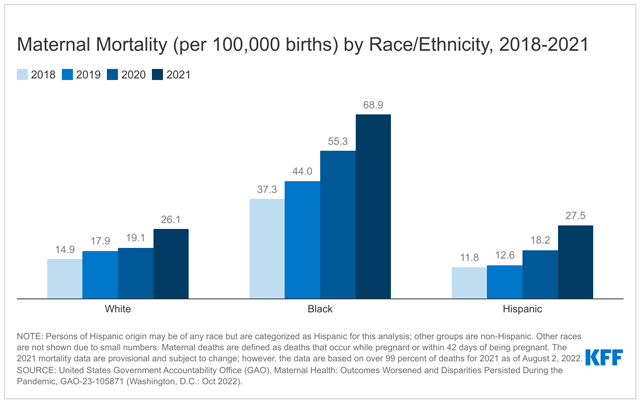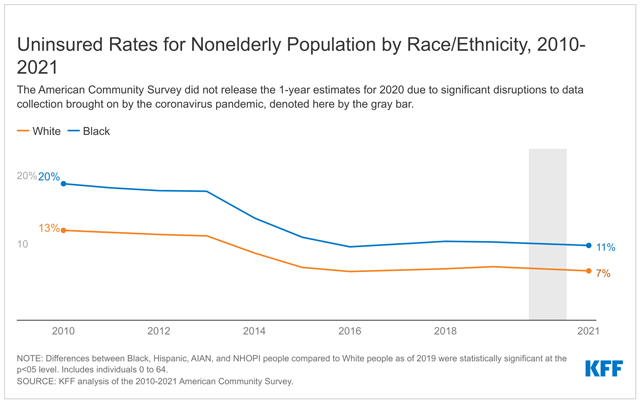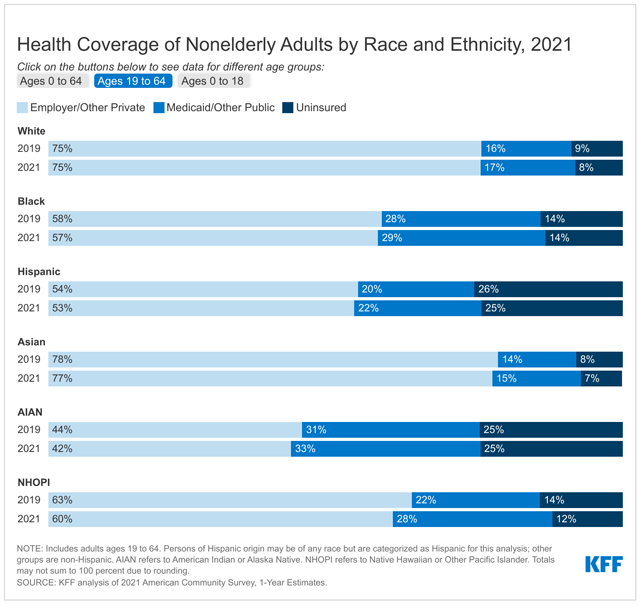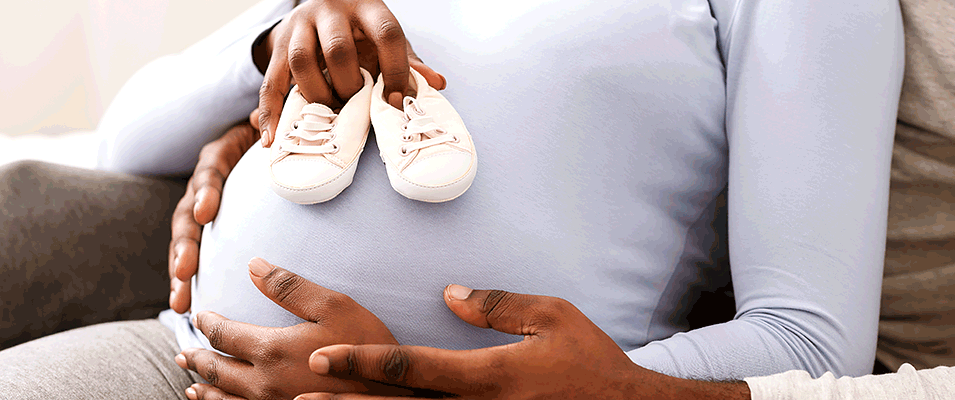By Tiara Brownie
The risk of death due to complications during pregnancy is three times higher for black women than white women, according to The Centers for Disease Control and Prevention. This is due to several factors, including healthcare differences and preexisting chronic diseases. In addition, many women from racial and ethnic minority groups are denied equitable access to resources that would improve their mental, physical, and financial well-being because of social determinants of health.
Roughly 30 women giving birth in New York City die each year from complications linked to pregnancy and childbirth, according to the New York City Council. However, another 3,000 women, the vast majority of whom are people of color, “nearly die” or have morbidity during childbirth.

Black women in New York City are approximately three times as likely as white women to develop severe maternal morbidity and are eight times as likely to die from a pregnancy-related reason. This problem increased during COVID. In its report, “How Recognizing Health Disparities for Black People is Important for Change,” the Kaiser Family Foundation reports “Black people have the highest rates of infant mortality and maternal mortality across all racial and ethnic groups for which data were available and experienced the largest increase in maternal mortality when compared to pre-pandemic levels.”
In its report, “Maternal Health: Outcomes Worsened and Disparities Persisted During the Pandemic,” the General Accounting Office suggested this may be because COVID impacted access to care, transportation, women’s living environment and their employment. The pandemic illustrated how racism impacts maternal health, said the GAO, noting that chronic stress can cause physiological changes which may increase the risk of maternal death.
City officials have acknowledged this is a troubling trend. “Black birthing individuals in our city and across the United States deserve to receive culturally sensitive, patient-centered care that is attuned to their unique needs free of bias and racism that has resulted in the deaths of too many pregnant people,” says Bronx Borough President Vanessa L. Gibson.
Toya Reed, a receptionist at Montefiore GYN office in the Bronx, says she notices how insurance plays a big role in black women’s health and maternity crisis. More black women lack insurance and fewer have private coverage.


Women of color have a higher risk of complications during childbirth due to higher rates of diabetes. Diabetes, both type 1 and type 2, can have a significant impact on the health of the mother and her unborn child during pregnancy. When a woman has diabetes type 1 or type 2, having high blood sugar around the time of conception raises her baby’s risk of being born with birth abnormalities, being born a stillbirth, or being born prematurely. African Americans are more likely to get diabetes due to genetics, a high rate of obesity, and insulin resistance.
New York City Mayor Eric Adams says his administration is committed to making the city the future of women’s health. His initiatives include relaunching a sexual education task group in all city schools, monitoring health issues that impact women the most, and gathering thought leaders to determine future actions, among others. Mayor Adams explains that for far too long, men’s health and health care have been the primary focus and that it’s time for a change. He says he has personally witnessed firsthand how the city’s healthcare system fails female citizens.
Tracking and monitoring disease prevalence is necessary to eradicate maternity health issues and cardiovascular disease, says the Adams administration which will utilize the findings to provide direction to city agencies involved with women’s health.
Mayor Adams also plans on launching a family-based substance use disorder program for people who are pregnant and or parenting while battling addiction. The primary focus of the drug use disorder programs is to provide support to prevent maternal and heart-related health issues. In addition, the participants’ children will receive mental health care and other services as part of the program.
Family medicine, behavioral health, and addiction medicine will all be included in the program, which will cover a spectrum of care. Meanwhile, the program will also address the psychological, social, and mental health requirements of children. Primary care will also be provided.



